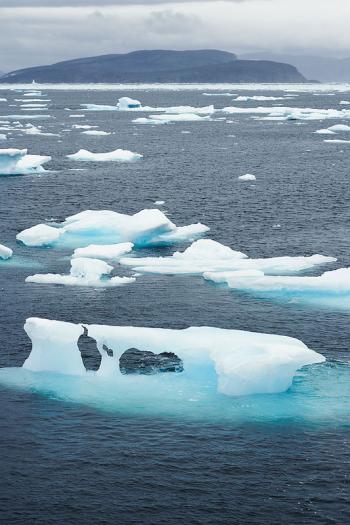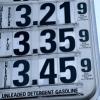EcoHustle

On the off chance that it is becoming possible to think about the climate crisis and our economic collapse as related events, consider the admonitions coming from the financial institutions, corporate media and political establishment of late. Is there any doubt that most of the talking heads on cable, along with an uncomfortable ratio of the professional politicians they report and comment on, do not know what they’re talking about when it comes to the causes for and ways out of our economic recession? Why does the picture seem so incomplete? What’s being left out of the discussion? Who, speaking through silence, bears the name of the one who signs the text?
Perhaps the most famous man to shed a tear in a television commercial was a Sicilian actor named Iron Eyes Cody. Dressed as a Native American of indeterminate tribal affiliation, he paddles a canoe through stagnate waters to a shore littered with all kinds of trash, smokestacks chugging away in the background, eventually arriving at a crowded highway. “Cannon” and “Bullwinkle” star William Conrad intones, “People start pollution. People can stop it.” The Keep America Beautiful ad left us with the salutary glimpse of the tear running down his face.
Maybe this very powerful ad seemed like a turning point when it aired in 1971, and maybe it was because we’ve been tacking the other way ever since. Instead of giving the crying Indian a reason to dry his eyes, we’ve spared no expense to design the perfect towelette to wipe his tear, while generally discouraging such public displays of disaffection. Rather than seeing it for what it was, this example is much more instructive in the service of what was to follow.
The reality show of the American energy future has continued apace, not unrelated to where we left the crying Indian with trash at his feet a few short years ago. Built on the distinct appeal of "tune in next week to see what happens," it has evolved into an elimination of survivors where we’re making do with what’s left. Yet even as we’re all quite sure that cheap oil won’t last and that anthropogenic C02 emissions will alter the chemical equilibrium of the Earth, the pre-eminent question remains not how, but whether we will plan ahea
We facilitate this down the line - from the shows we watch to the books we read to the politicians we elect. It’s pretty much an accepted fact that a singular hyperpower will eventually be ruled by an oligarchy. Pace Jefferson and Payne, no one knew how candid this transition might be under the direction of democratic capitalism. Corporatized masses looking to further their economic advantages any way possible foment a reality we are only on the lookout for more ways to showcase. We continue to be fascinated by lascivious displays of wealth, Shakespearean falls from grace and skip-the-second-act-comeback stories. Any nod to equity - an energy strategy meant to dampen demand and conserve precious resources, or a universal healthcare plan - is automatically aligned against the "interests" of some, such as they are.
Will the recession defeat efforts to combat climate change? Please make sure your answer is legible and show your work. Here’s a newsflash: the recession will not end without long-term, sustainable efforts to combat climate change. All of the measures identified with lessening our carbon footprint are precisely the ones required for viable economic health - on the scale of whatever size system you want to choose. Do not allow yourself to accept this choice that is not a choice where it is posited that we might be able to get back on track but we’ll have to put this climate stuff off for later. We cannot. The financial crisis is the environmental crisis writ small into our instant-gratification-stained shrouds of ruin, in which we do not yet believe but in which we should deeply trust.
Obviously, a significant opportunity has opened up for leadership on the convergence of financial and ecological issues. But what do we hear? Mostly a repetition of that earlier question: you can have one or the other. Why is that? Are our senators and representatives cowards? Are they corrupt? Is that all? Money? Here the corporate/governing elite can’t or don’t see that the fruits of the very systems safeguarding so many advantages, to entrepreneurs and schemers alike, is in the same danger as local car dealerships.
An embarrassing lack of imagination makes us so fearful of tackling these complexities head-on. Everyone talks about rolling up their sleeves and good ole’ American whatever... but we greatly, like our cable commentariat, don’t have the slightest idea what any of this would mean. The rear-view syndrome has us paralyzed about what to do next, a product of much of the above as well as its corrective. When the next things to do start sounding made up, we’ll know we’re going in the right direction again.
Keywords
More by Alan Flurry
-

Sunday Morning in America
A Lesson from Jimmy Carter
Notes on an ex-president's Sunday School class.
-

EcoHustle
Large corporations and trade groups representing the oil, coal and auto industries are quietly moving onto the next phase of their strategy.
-

EcoHustle
What Green Means
Just as was in evidence last summer, the price of gas is going to climb again soon.









comments